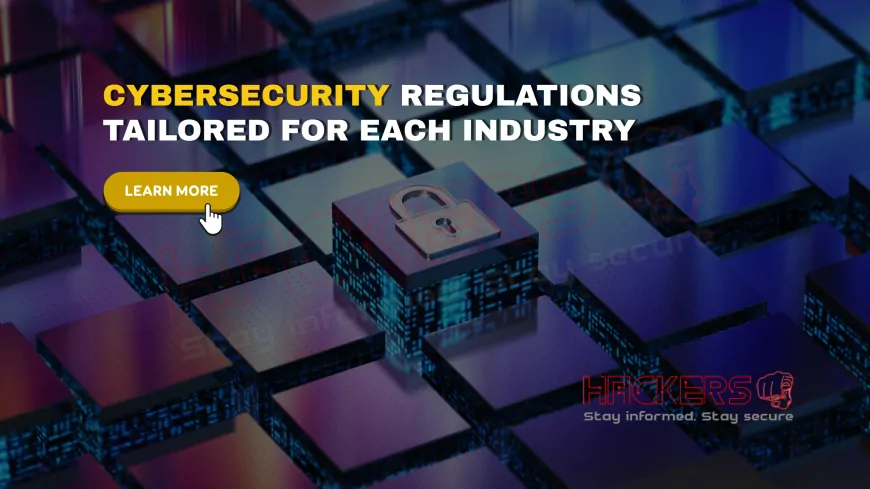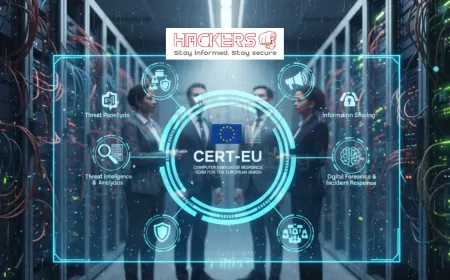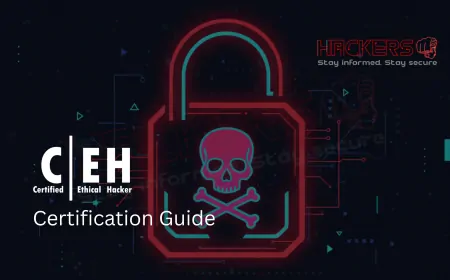Why Do Different Industries Need Their Own Cybersecurity Regulations?
Picture this: A hospital's computer system goes down during a cyber attack, delaying life-saving surgeries. Or a bank's database is breached, exposing millions of customers' financial details. Now imagine a power grid failure caused by hackers, plunging cities into darkness. These aren't scenes from a dystopian movie—they're potential realities in our digital age. As industries rely more on technology, cyber threats grow, but not all sectors face the same risks. That's why tailored cybersecurity regulations are essential. They address unique vulnerabilities, protect sensitive data, and ensure operations run smoothly. In this blog, we'll explore why different industries need their own rules, looking at examples from healthcare to finance and beyond. Even if you're new to cybersecurity—basically, protecting digital systems from attacks—we'll keep it simple and explain terms as we go. By the end, you'll see how these regulations safeguard our world in ways a one-size-fits-all approach never could.

Table of Contents
- Understanding Cybersecurity Regulations
- The Limitations of General Regulations
- Healthcare: Protecting Patient Lives and Data
- Finance: Safeguarding Money and Trust
- Energy and Critical Infrastructure: Preventing Catastrophes
- Retail and E-commerce: Battling Data Breaches
- Manufacturing and IoT: Securing Connected Devices
- Education and Government: Unique Public Sector Needs
- Benefits of Industry-Specific Regulations
- Challenges in Implementation
- Key Examples of Industry Regulations
- Future Trends in 2025 and Beyond
- Conclusion
- Frequently Asked Questions
Understanding Cybersecurity Regulations
Cybersecurity regulations are rules set by governments or organizations to protect digital information and systems from threats like hacking or data leaks. These threats can come from cybercriminals, nation-states, or even careless insiders. Regulations often require companies to implement measures like firewalls—digital barriers against unauthorized access—or regular audits to check for weaknesses.
Why do they exist? In a world where data is gold, breaches can cost billions and erode trust. General regulations, like the EU's GDPR (General Data Protection Regulation), apply broadly, focusing on privacy across sectors. But industries differ in what they handle: Healthcare deals with life-or-death info, finance with money, energy with infrastructure. Tailored regs address these specifics, ensuring protections match risks.
For beginners, think of it like safety standards. Cars have airbags for crashes, but airplanes need oxygen masks for high altitudes. Similarly, industries need regs that fit their "environment." This approach minimizes harm, complies with laws, and fosters innovation by setting clear expectations.
As we delve deeper, you'll see how one blanket rule can't cover the diverse threats industries face. Tailoring is key to effective defense.
The Limitations of General Regulations
General cybersecurity regulations, while helpful, have blind spots when applied universally. For instance, GDPR mandates data protection but doesn't detail how hospitals secure medical devices or banks encrypt transactions. This one-size-fits-all can lead to gaps: A retail breach might expose emails, but a healthcare one could reveal health records, with graver consequences.
Compliance burdens small businesses differently across sectors. A tech startup might handle general regs easily, but a manufacturer with IoT—Internet of Things, connected devices—needs specifics on device security. General rules might overlook supply chain risks in manufacturing or patient privacy in health.
Enforcement varies too. Without industry focus, regulators might miss nuances, like how energy grids face state-sponsored attacks versus retail's phishing scams. This mismatch can delay responses or underprotect critical areas.
Ultimately, general regs provide a foundation, but industry-specific ones build the walls, ensuring robust, relevant protection.
Healthcare: Protecting Patient Lives and Data
In healthcare, cybersecurity isn't just about data—it's about lives. A breach could alter patient records, leading to wrong treatments, or ransomware could lock systems during emergencies. That's why regs like HIPAA (Health Insurance Portability and Accountability Act) in the US exist. HIPAA requires safeguarding protected health information (PHI), like medical histories, through encryption and access controls.
Unique risks include connected medical devices, like pacemakers, vulnerable to hacking. Regs mandate regular updates and vulnerability assessments. In 2025, updates to HITRUST add AI security, addressing automated threats.
Without tailored rules, breaches could spike. Remember the 2021 Colonial Pipeline hack? Similar in health could halt supplies. Tailored regs ensure quick reporting and recovery, protecting patients.
They also build trust: Patients share info knowing it's secure. In essence, healthcare regs are lifelines, customized to the sector's high stakes.
Finance: Safeguarding Money and Trust
The finance sector handles money, making it a prime target for fraud and theft. Breaches can lead to identity theft or market crashes. Regs like PCI DSS (Payment Card Industry Data Security Standard) focus on card data protection through tokenization—replacing sensitive info with codes.
NYDFS Cybersecurity Regulation requires banks to report incidents within 72 hours and conduct risk assessments. In Europe, DORA (Digital Operational Resilience Act) emphasizes resilience against disruptions.
Why specific? Finance faces insider threats and sophisticated phishing. General regs might not cover real-time transaction monitoring. In 2025, updates address AI in fraud detection.
These rules maintain economic stability: A major breach could cause panic. Tailored regs ensure robust defenses, preserving trust in the system.
Energy and Critical Infrastructure: Preventing Catastrophes
Energy sectors power societies, so attacks could cause blackouts or explosions. Regs like NERC CIP (North American Electric Reliability Corporation Critical Infrastructure Protection) mandate physical and cyber protections for grids.
In the EU, NIS2 Directive expands to more sectors, requiring incident reporting and supply chain security. Unique risks: State actors targeting SCADA systems—supervisory control and data acquisition, for industrial control.
2025 sees IoT updates, as smart grids connect more devices. Without specifics, vulnerabilities persist. Tailored regs prevent disasters, ensuring reliability.
Retail and E-commerce: Battling Data Breaches
Retail deals with customer data and payments, prone to breaches like the Target hack. PCI DSS applies here too, focusing on secure transactions. GDPR adds privacy for EU customers.
Risks: Phishing and malware on e-commerce sites. Regs require multi-factor authentication—extra login steps. In 2025, supply chain rules address vendor risks.
Tailored regs protect consumers, reducing fraud and maintaining business.
Manufacturing and IoT: Securing Connected Devices
Manufacturing uses IoT for efficiency, but devices are hackable. IEC 62443 provides standards for industrial automation. CMMC (Cybersecurity Maturity Model Certification) for US defense contractors ensures supply chain security.
Risks: Ransomware halting production. 2025 updates focus on AI and cloud. Specific regs prevent disruptions, safeguarding economies.
Education and Government: Unique Public Sector Needs
Education handles student data; breaches affect futures. FERPA (Family Educational Rights and Privacy Act) protects records. Government faces espionage; FISMA (Federal Information Security Modernization Act) mandates risk management.
Risks: Remote learning vulnerabilities. Tailored regs ensure public trust and service continuity.
Benefits of Industry-Specific Regulations
These regs enhance security by addressing precise threats, reduce costs through targeted measures, and encourage innovation. They also improve compliance and global alignment.
Challenges in Implementation
Costs burden small firms; keeping up with tech is hard. Overlap confuses; enforcement varies. Yet, benefits outweigh challenges.
Key Examples of Industry Regulations
Here's a table of examples:
| Industry | Key Regulation | Focus | Region |
|---|---|---|---|
| Healthcare | HIPAA | Patient data protection | US |
| Finance | PCI DSS | Card data security | Global |
| Energy | NERC CIP | Grid protection | US |
| Manufacturing | IEC 62443 | Industrial automation | Global |
| Retail | GDPR | Data privacy | EU |
Future Trends in 2025 and Beyond
In 2025, regs evolve with AI, cloud, and supply chains. NIS2, DORA, CIRCIA emphasize resilience. IoT guidance emerges. Focus on global harmonization.
Conclusion
Different industries need their own cybersecurity regulations because each faces unique threats and stakes. From healthcare's life-saving data to finance's economic trust, tailored rules provide precise protection. While challenges exist, benefits like enhanced security and innovation prevail. As 2025 brings new tech, these regs will adapt, ensuring a safer digital world. Stay informed—your industry might depend on it.
Frequently Asked Questions
What is cybersecurity?
Cybersecurity is the practice of protecting systems, networks, and data from digital attacks.
Why can't one regulation cover all industries?
Industries have different risks; general rules miss specifics like patient data in healthcare.
What is HIPAA?
HIPAA is a US law protecting health information through security measures.
How does PCI DSS help finance?
It sets standards for secure handling of credit card data to prevent fraud.
What are critical infrastructure regs?
Like NERC CIP, they protect essential services like energy from cyber threats.
Why is GDPR important for retail?
It ensures customer data privacy, reducing breach risks in e-commerce.
What is IoT in manufacturing?
IoT means connected devices; regs like IEC 62443 secure them against hacks.
Do education sectors need specific regs?
Yes, like FERPA, to protect student records from breaches.
What benefits do tailored regs offer?
They provide relevant protection, reduce costs, and boost compliance.
What challenges do they pose?
High costs, tech evolution, and regulatory overlap.
What's new in 2025?
Focus on AI, cloud, and supply chain security in regs like NIS2.
What is ransomware?
Malware that locks data, demanding payment for access.
How do regs build trust?
By ensuring data safety, encouraging customer confidence.
What is encryption?
A method to scramble data so only authorized users can read it.
Are regs global?
Some like ISO 27001 are; others are regional like GDPR.
How do breaches affect industries?
They cause financial loss, reputational damage, and operational halts.
What is multi-factor authentication?
Extra verification steps beyond passwords for login.
Why report incidents?
To enable quick responses and learn from threats.
Can small businesses comply?
Yes, with scalable measures and guidance.
What's the future of regs?
More integration with emerging tech like AI.
What's Your Reaction?










































































